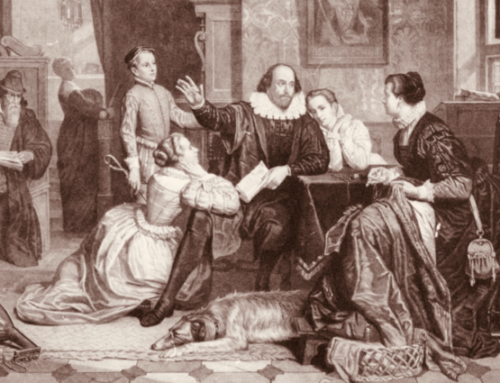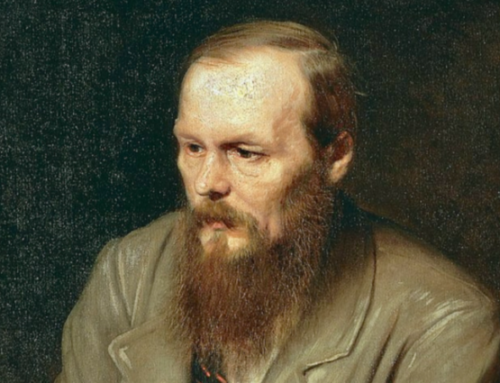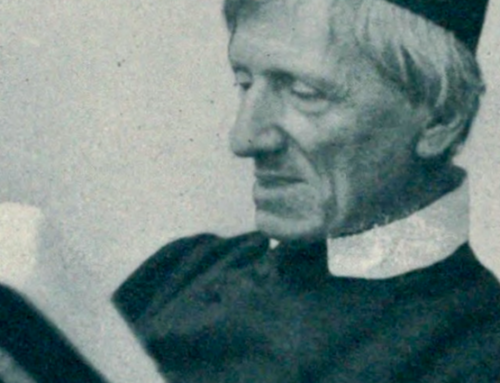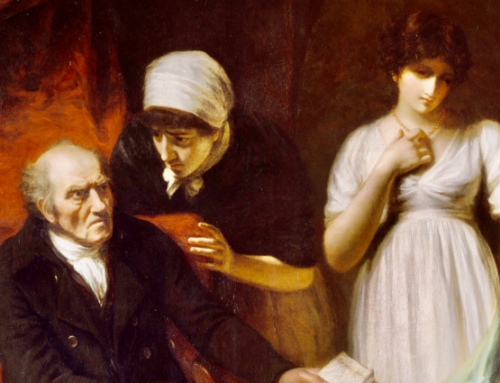“And what perhaps we wish the past had been.” Here we find the notion that there is no simple return to the past to make the modern world better. In these days when most of us are locked inside our homes, we need more beauty, more poetry to remind us of the hope that Easter brings.
The Slumbering Host, edited by Clinton Collister and Daniel Rattelle (105 pages, Little Gidding Press, 2019)
 “Our task is, as it always has been, to make beautiful things.” So says Daniel Rattelle, one of the two editors of a new slim volume of verse. The Slumbering Host, edited by Mr. Rattelle and Clinton Collister, seeks to do just that, make beautiful things, specifically in verse. Perhaps now, in the midst of the quarantines so many of us are facing, a little more beauty is especially needed. And The Slumbering Host delivers just that.
“Our task is, as it always has been, to make beautiful things.” So says Daniel Rattelle, one of the two editors of a new slim volume of verse. The Slumbering Host, edited by Mr. Rattelle and Clinton Collister, seeks to do just that, make beautiful things, specifically in verse. Perhaps now, in the midst of the quarantines so many of us are facing, a little more beauty is especially needed. And The Slumbering Host delivers just that.
The poems included in this small volume were selected from The North American Anglican, an online Anglican magazine dealing with issues of faith, culture, and the arts. Mr. Collister is editor of their “Poet’s Corner,” presumably named after the section of Westminster Abbey where many poets and authors are celebrated and enshrined. The book features the poetry of 18 different poets, some having only one or two poems, and no one having more than five. It is refreshing to see, even in so slender a volume, such a variety of poets. The book includes more well-known poets such as James Matthew Wilson and Sally Thomas, but also lesser known poets. Mr. Rattelle and Mr. Collister make it clear that inclusion is dependent on beauty and ability, not on name recognition.
All the poems included are written in some kind of form: some in iambic pentameter, and one poem appears to be in a trochaic heptameter, though I could be wrong. Whatever the case, the book clearly celebrates formal poetry, but not in such a way as to suggest that formal verse is the only real or true poetry, something altogether too common these days.
It would be impossible to review every poem included, and as so many reviewers are too prone to focus on the bad, I want to focus on a few standout poems from my perspective. The first poems I want to showcase are Sally Thomas’s trio of sonnets, all centered on her character, the Hermit. The Hermit is not an anchorite monk, but rather a man living by himself somewhere in the North American woods. Her first poem, “Ordinary Time,” has the Hermit looking out at a sunny January sky. The scene is prosaic enough. We all have looked, and even been moved, by the sun shining through the clouds. But the hermit is moved in an unexpected way. The Hermit is confused by this feeling. After all, “he is free. So, why?” Why, the narrator asks, does he feel a longing? The question is left unanswered. And this is fitting. After all, this is Ordinary Time: to see the world around us, to live in the day-to-day, to feel satisfied, and yet to long for more. The sestet is particularly moving:
His old desires in hand, always he yearns.
Heaven’s a break in clouds that here, today,
Have cleared, a warm breath when the wind is warm.
Is there anything he needs? Along his arm,
Hairs rise, prickling, prescient. This is the way
It strikes him. Satisfied, his soul still burns.
See how Ms. Thomas uses the rhyme scheme, CDEEDC to draw us from the last to first line in the sestet. The Hermit yearns for something, and despite his seeming satisfaction, still his soul burns. Ms. Thomas has presented us with a variation on an Italian sonnet, where the volta or turn shows us the discontent of her hermit. It is masterfully done.
The second poem and poet I want to focus on is “Grey Stone” by Drew Keane. This poem, written in iambic pentameter, rhyming in heroic couplets, details the poet’s infatuation with ancient and medieval sculpture and architecture. The first half sings the praises of these older artists, and looks back at them longingly.
The stone remains and sings a silent song
Of strength and glory lost to ages long.
So the poet sings at the end of the first stanza. But then a turn comes with the second stanza.
So too the ancient sculptors left not bare
The stones that they had fashioned with such care,
But rather (to my horror) covered them—
They painted in the eyes and clothed each limb.
The poet recognizes that what he assumed the past had been like is wrong. The final lines lay this out quite clearly, ending with this beautiful line, “And what perhaps we wish the past had been.” Here we find exactly that notion that there is no simple return to the past to make the modern world better. After all, our own vision of the past may well be wrong.
So it is that I recommend this volume to you. In these days when most of us are locked inside our homes, we need more beauty, more poetry to remind us of the hope that Easter brings.
The Imaginative Conservative applies the principle of appreciation to the discussion of culture and politics—we approach dialogue with magnanimity rather than with mere civility. Will you help us remain a refreshing oasis in the increasingly contentious arena of modern discourse? Please consider donating now.
The featured image is courtesy of Pixabay.







Leave A Comment